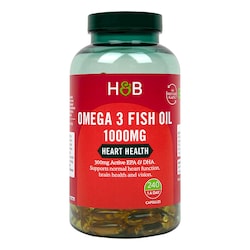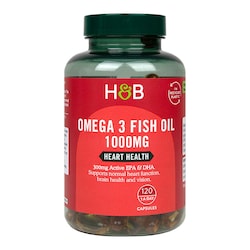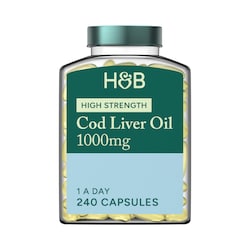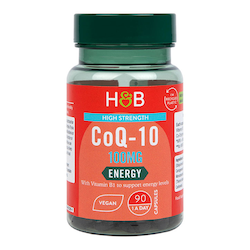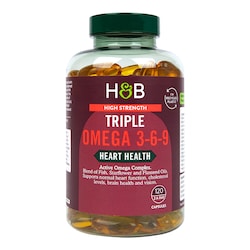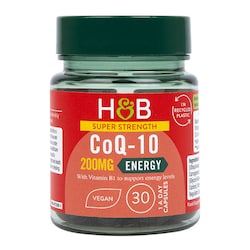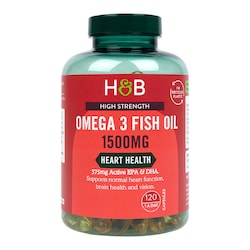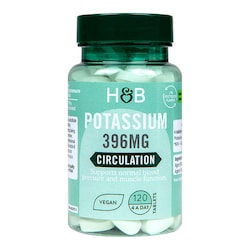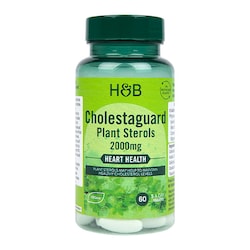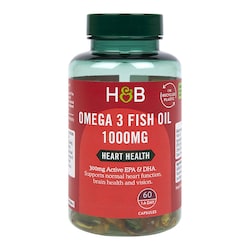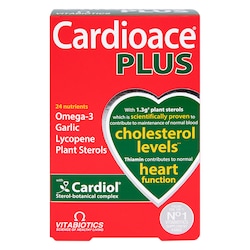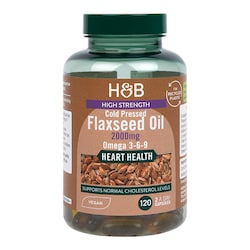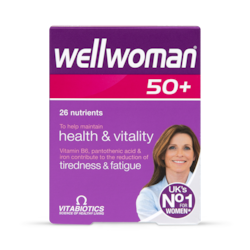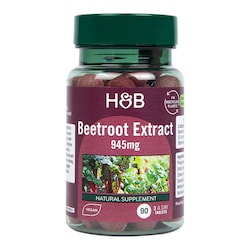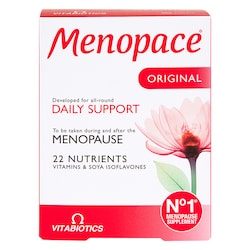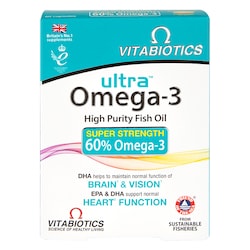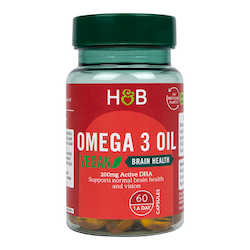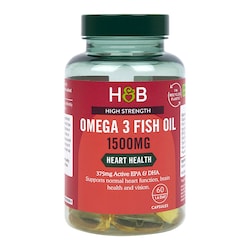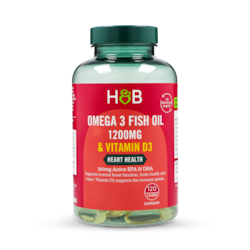20% off £30
Code:QUICK
Ultimate guide to potassium: function, foods, deficiency and supplements

How well do you know potassium – the powerhouse electrolyte crucial for keeping your body in balance?
Summary
1What is potassium and why do I need it?
Let's start with the basics – potassium is a type of electrolyte, a mineral that carries an electric charge when…
2How much potassium do I need?
Since our bodies can’t produce potassium, we need to get it from food or supplements…
3What are potassium-rich foods?
Many foods contain potassium, and you can get your recommended amount from eating a varied diet…
When we think about vitamins and minerals, potassium isn’t usually the first that comes to mind. But that makes it no less important – potassium plays essential roles in a number of processes in our bodies.1-3
The question is, are we getting enough from our diets alone, or do we need supplements to boost our intake?
What is potassium and why do I need it?
Let's start with the basics – potassium is a type of electrolyte, a mineral that carries an electric charge when dissolved in water or bodily fluids like blood. Electrolytes help to conduct electrical impulses in the nerve and muscle cells.1 Other electrolytes that our bodies rely on to function properly include calcium, magnesium and sodium.1
By keeping your body in rhythm, potassium has several important roles in the body, including contributing to:2,3
- the normal functioning of the nervous system
- normal muscle function
- the maintenance of normal blood pressure
Maintaining these everyday processes may affect your health outcomes in the future too. Potassium helps to control blood pressure by balancing the effects of sodium (which increases blood pressure) and relaxing tension in blood vessel walls.4 One study, published in the Journal of the American Heart Association, found that people who had more potassium in their diet were 13% less likely to have a heart attack or stroke than those who had the lowest amount.5
In addition, a potassium-rich diet may support bone health by lowering the amount of calcium lost via the kidneys.6

How much potassium do I need?
Since our bodies can’t produce potassium, we need to get it from our diet. A healthy, balanced diet should give you all the potassium you need, though survey data show that many of us aren’t getting enough.3
Check out the table below to see how much you and your family should be aiming for every day:
| Age | Daily recommended amount7,8 |
|---|---|
| 1 to 3 years | 800mg |
| 4 to 6 years | 1,100mg
|
| 7 to 10 years | 2,000mg |
| 11 to 14 years | 3,100mg |
| 15 years and up | 3,500mg |
What are potassium-rich foods?
Many foods contain potassium, and you can get your recommended amount from eating a varied diet. Potassium-rich foods include:2
- some fruit, like bananas and avocado
- dried fruit, such as dried apricots, prunes, raisins and figs
- vegetables, such as potatoes, squash, spinach, tomatoes, broccoli, parsnip and beetroot
- orange juice
- milk and yoghurt
- lentils
- kidney beans
- soybeans
- nuts
You can also find potassium in meat, such as beef, chicken, turkey and fish.7
What are the symptoms of low potassium?
A potassium deficiency, typically occuring in rare cases due to poor diet or if you have an underlying condition, is called hypokalaemia.
Because potassium is used in lots of different ways in the body, a deficiency may lead to a range of symptoms. These can include:2,9
- constipation
- tiredness
- muscle weakness
- not feeling well
- cramps or spasms
- increased urination, difficulty breathing, irregular heartbeat and muscle paralysis, in severe cases
Hypokalaemia can be caused by prolonged diarrhoea, vomiting or taking diuretics.2 People with kidney disease, inflammatory bowel disease or pica are also more at risk of having low potassium levels.2,9
Can I have too much potassium?
Most people don’t need to worry about having too much potassium in their diets, as the kidneys remove excess amounts via urine.10 And if you’re taking potassium supplements, then 3,700mg or less a day is pretty unlikely to have any harmful side effects.
However, those with kidney problems, older people and people taking blood pressure medications may be at risk of harm from potassium if they have too much.7,10
Having too much potassium in your blood is called hyperkalaemia.11 Symptoms don’t always appear – if they do, they’re usually mild and include muscle weakness, tingling, nausea, stomach pain and diarrhoea.7,11
Should I take potassium supplements?
Most people can hit their potassium needs by eating a balanced diet.7
However, in some rare cases, people may be more at risk of a potassium deficiency. This includes those with kidney disease or inflammatory bowel disease, or people taking laxatives or diuretics.2,9
You may be recommended a potassium supplement if you have high blood pressure12 but you should only take it under your doctor’s guidance. If you’re on any other medication, tell your doctor before taking a potassium supplement, as it may interact with certain medicines, including angiotensin-converting-enzyme (ACE) inhibitors and loop diuretics.12
Children don’t need to take potassium supplements. According to the World Health Organisation, children aged 2–15 years old should be able to get the potassium they need from a healthy and balanced diet.13 But, if you think your child might benefit from a few extra nutrients speak to a dietician or registered nutritionist and check out our recommended supplements for children.
Older people should only take potassium supplements if their doctor has advised them to. This is because, with age, our kidneys may have a harder time removing excess potassium from our blood.7
The final say
A healthy, balanced diet should help you get all the potassium you need, so if you’re eating well, you probably don’t need to worry that you’re missing out on this crucial mineral.
The advice in this article is for information only and should not replace medical care. Please check with your GP or healthcare professional before trying any supplements, treatments or remedies. Food supplements must not be used as a substitute for a varied and balanced diet and a healthy lifestyle.
While we strive for accuracy and balance, please be aware that this article may discuss products available for purchase through Holland & Barrett. Consult a healthcare professional before making any health-related decisions.
- Shrimanker I, Bhattarai S. Electrolytes. Treasure Island (FL): StatPearls Publishing; 2024. Available from: https://www.ncbi.nlm.nih.gov/books/NBK541123/
- National Institutes of Health. Potassium. Fact sheet for consumers [Internet]. [cited 2024 Sept 24]. Available from: https://ods.od.nih.gov/factsheets/Potassium-Consumer/
- British Nutrition Foundation. Vitamins and minerals [Internet]. [cited 2024 Sept 24]. Available from: https://www.nutrition.org.uk/nutritional-information/vitamins-and-minerals/
- American Heart Association. How potassium can help control high blood pressure [Internet]. [cited 2024 Sept 27]. Available from: https://www.heart.org/en/health-topics/high-blood-pressure/changes-you-can-make-to-manage-high-blood-pressure/how-potassium-can-help-control-high-blood-pressure
- Vincenti M, et al. Meta-analysis of potassium intake and the risk of stroke. J Am Heart Assoc. 2016;5(10):e004210. https://doi.org/10.1161%2FJAHA.116.004210
- Lambert H, et al. The effect of supplementation with alkaline potassium salts on bone metabolism: A meta-analysis. Osteoporos Int. 2015;26(4):1311–8. https://doi.org/10.1007/s00198-014-3006-9
- NHS. Potassium [Internet]. [cited 2024 Sept 24]. Available from: https://www.nhs.uk/conditions/vitamins-and-minerals/others/
- Public Health England. Government Dietary Recommendations [Internet]. [cited 2024 Sept 24]. Available from: https://assets.publishing.service.gov.uk/government/uploads/system/uploads/attachment_data/file/618167/government_dietary_recommendations.pdf
- Castro D, Sharma S. Hypokalaemia. Treasure Island (FL): StatPearls Publishing; 2024. Available from: https://www.ncbi.nlm.nih.gov/books/NBK482465/
- Simon LV. Hyperkalaemia. Treasure Island (FL): StatPearls Publishing; 2024. Available from: https://www.ncbi.nlm.nih.gov/books/NBK470284/
- National Kidney Foundation. Hyperkalaemia (high potassium) [Internet]. [cited 2024 Sept 24]. Available from: https://www.kidney.org/kidney-topics/hyperkalemia-high-potassium
- National Institutes of Health. Potassium. Fact sheet for health professionals [Internet]. [cited 2024 Sept 27]. Available from: https://ods.od.nih.gov/factsheets/Potassium-HealthProfessional/
- World Health Organisation. Potassium intake for adults and children [Internet]. [cited 2024 Sept 24]. Available from: https://iris.who.int/bitstream/handle/10665/77986/9789241504829_eng.pdf?sequence=1



